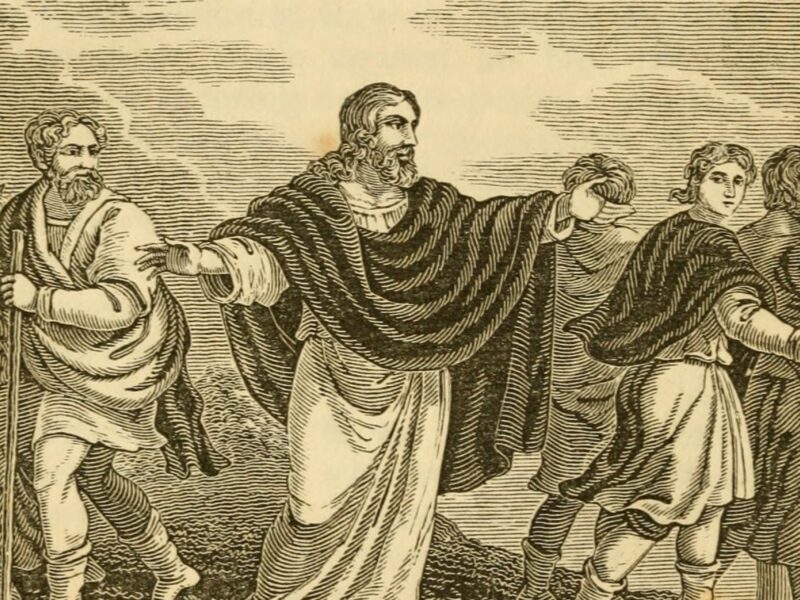
The Peace of Reconciliation
Second Sunday of Easter (Low Sunday). Fr Austin Milner preaches on the peace and forgiveness of Christ in his Church.
On the first Easter Sunday the disciples were gathered together, the doors were locked, but suddenly they became aware that Jesus was standing among them. The same thing happened the following Sunday and it continues to happen whenever the Church comes together in Jesus’ name, especially on the first day of the week, for this is now the Lord’s day.
So even on this Easter Sunday of the year 2003 Jesus is among his followers wherever in the world they have come together. This real presence is experienced when he speaks to them through the scriptures which are read, when he gives himself to them as food and drink, which unites them to him in one body, when he joins himself to that body as it sings and praises God his Father, and when he offers to the Father the whole body of his members along with himself.
But the principal effect of this presence is the experience of the peace that he imparts to his followers.
On the very first Easter Sunday, the disciples were hiding in an upper room, Jesus was dead, crucified, and all their hopes were in ruins. They had abandoned him and even denied that they knew him. They were filled with guilt. For fear of what the Jews might do to them they had locked the doors.
But then Jesus was standing among them very much alive. The joy they experienced at that moment must have been mixed with the fear of his rebuke, but all he says to them is:
Peace be with you.
As the outcasts of Jewish society, the tax-gatherers and the sinners, when invited to eat with Jesus during his ministry, were made to feel forgiven as though invited to God’s heavenly banquet, so the guilt-ridden disciples knew, on this first Easter day, that they were restored to favour and bidden to enter into the joy of their Lord.
Peace puts an end to fear, peace puts an end to anger about the present and anxiety about the future, peace reassures us of God’s love and friendship. It is through this peace of our risen Lord Jesus, through the assurance of his reconciling love, that his presence among us each Sunday is first of all revealed.
On that first Easter Sunday, without further word or warning he sent his disciples forth to be witnesses of his peace and his life giving love.
As the Father has sent me, so I am sending you.
So each Sunday his followers are sent on a mission of peace and joy. To enable his disciples to carry out that mission he breathes on them and imparts to them the Hole Spirit. For the Holy Spirit gives power for mission.
But the particular power mentioned here is the power to forgive sins. It is without any doubt the meaning of this text that Jesus gives to all his disciples the power to take part in the process of the forgiveness of sins, and so to continue his mission of peace.
How is this power to be exercised? In the first place it is exercised in all those things which leads to conversion, the nurturing of faith and to baptism.
It is also exercised in the whole work of calling back those who after baptism fall again into grievous sin, enabling them once again to experience the peace of Christ. The fact that the shepherds of the community necessarily have a very important role in this process of the reconciliation of sinners in no way belittles the role of the community and each of its members.
The Christian community is the home of Christ’s peace. The goal of every Christian community is to make all the members feel accepted and wanted as people whom God has forgiven, and whose sins are no longer remembered and held against them. To let them feel recognized as his sons and daughters, people whom he has filled with his Holy Spirit.
In the Church’s mission to forgive sins, this quality of peace, joy and mutual acceptance, which should pervade every local community of the Church, plays an important role. So may the peace of our Lord Jesus Christ, and the love of God, and the fellowship of the Holy Spirit, be with you all.


